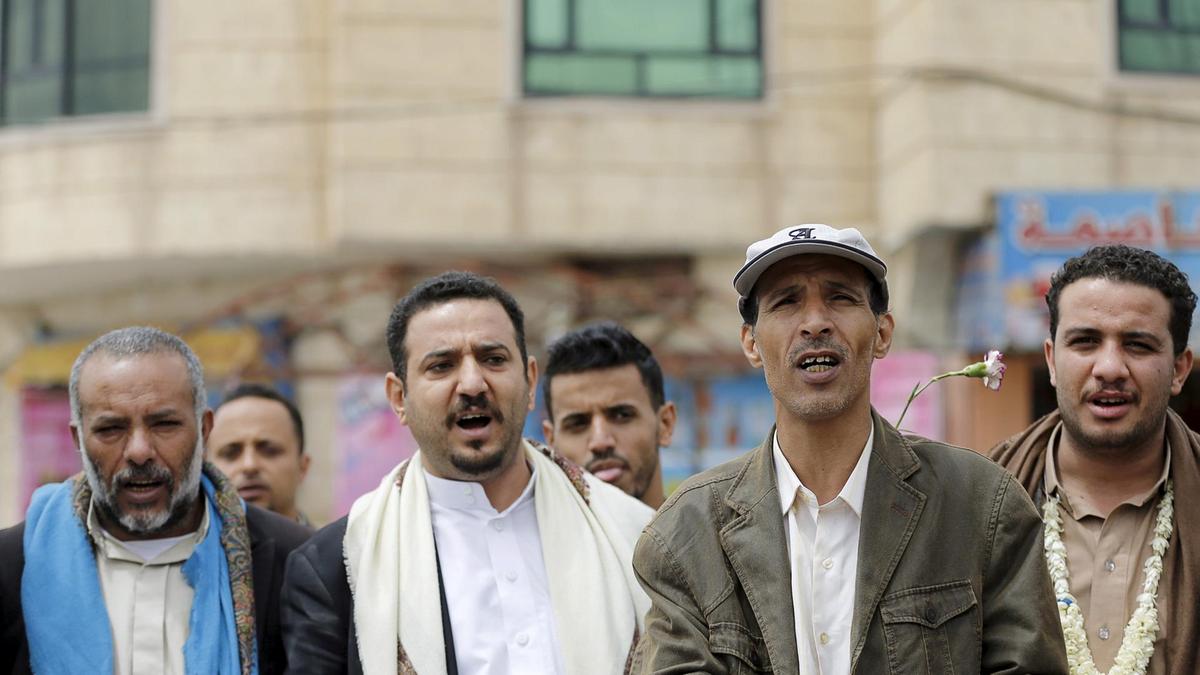Source: www.thenational.ae
Iran-backed rebels promised to release six Bahai members in March but they remain behind bars
The rebels announced in March that they would release Bahai leader Hamed bin Haydara and another five members of the faith, but they remain behind bars.
Since then, the Houthis have ignored international calls to release the detained men.
“We join members of the International Religious Freedom Alliance in calling on the Houthis to follow through on their March announcement to release the six Bahai prisoners of conscience in their custody, particularly given the heightened risk posed by the spread of Covid-19,” Sam Brownback, US ambassador at large for international religious freedom, said on Twitter.
Mr Brownback’s call was echoed by Jos Douma, the Netherlands special envoy for religion, who said the detainees were at high risk of contracting the disease.
A member of the German Parliament, Heribert Hirte, and the UK’s special envoy for freedom of religion and belief, Rehman Chishti, also urged the Houthis to free the prisoners.
The Bahai community said last month that two detainees in Sanaa’s Central Prison, where the six Bahai are held, have been diagnosed with the virus.
Prisons in Sanaa are “hotbeds” for coronavirus outbreaks because of their unsanitary conditions, Diane Ala’i, the Bahai International Community’s representative to the UN, said last month.
“The six Bahais, who have been tortured and denied medical care for years, are like all the other prisoners in similar conditions: very vulnerable to the disease,” Ms Ala’i said.
Yemen has a devastated healthcare system due to years of war and humanitarian catastrophes.
Reports indicate the Houthis have denied the outbreak’s existence in areas under their control.
The country has recorded 1,190 infected cases of the disease and 318 deaths, but many say the real numbers are much higher.
“All persons detained in a manner contrary to international human rights and humanitarian law should be released immediately,” said Kamel Jendoubi, chairman of the UN’s expert group on Yemen.
Mr Jendoubi said that included members of the Bahai community and those such as journalists, who are subject to an order of release granted by judicial authorities.
There have been concerns about the treatment of Bahai prisoners by the rebels, who have controlled much of northern Yemen and the capital, Sanaa, since the country’s civil war started in 2014.
For years, human rights advocates have decried what they say is unlawful incarceration of the Bahais and have demanded the minority be granted the right to practise its faith freely.

Leave a Reply